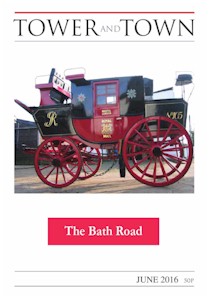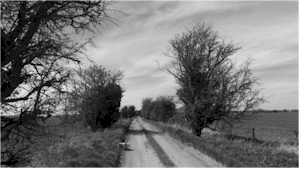

Tower and Town, June 2016 (view the full edition) (view the full edition)Fast Coaching On The Great Bath RoadFast coaches were the glamorous poster boys of the Bath Road, and mail coaches in particular took precedence over all other traffic. And while 10mph for a day coach in the 1830s seems to us painfully slow, they had halved journey times over the preceding 50 years - a similar effect to that achieved by motorways in our own time. The period of fast coaching was very short. Coaches in Queen Anne's time were heavy (think of the Lord Mayor of London's coach in his annual show) and moved at a stately walking pace, but as the eighteenth century progressed and more stretches of the roads were turnpiked and improved, speeds went up. By 1788 it became quicker to send the mails from Bath to London by coach than by a post boy on a horse. And the road improvements continued and speeds quickened, but within 50 years it had all stopped, killed by the trunk railways. 
But glamorous they were while they lasted; the day coaches, colourful and individually named and with outside seats on the roof for the hardy and brave (accidents were frequent) tend to feature on snowy Christmas cards: the mail coaches, in maroon and black, leaving London around 8pm and trotting through the night to get to Bath for breakfast time: the little post chaises rented from inn to inn and often painted yellow ('yellow perils') for individual travellers: and the private coaches of the very wealthy. Coach travel was very expensive, mostly because it needed a lot of horses. The coaches were hauled by a team of 4, which could only work one 10 to 20 mile stage per day. Furthermore they could not work every day but needed a day off each week. The result was that, as a rule of thumb, to take a coach 100 miles needed 100 horses. As an illustration when Parson Woodford every second year used to travel from Norwich to his sisters near Stourhead in the 1780s, the journey cost him about £10, the equivalent of many months wages for a working man. The railways prospered so quickly because they were so much cheaper, as well as faster, safer and more comfortable. Alexander Kirk Wilson |